Allison M. Dickson's Blog, page 27
March 14, 2011
A Necessary Cause

It may sound like a cliche, but there simply are no words to describe the horror coming out of the earthquake and tsunami ravaged areas of Japan.
That's why between 3/15 and 3/22, I will be donating all proceeds from my e-book sales through Smashwords to AmeriCares, an excellent disaster response charity.
I don't have a lot for sale. Just a few $.99 downloads. And you're more than welcome to bypass me and donate directly to any charity of your choice, of course. But if any of you happen to be buying some stories from me over the next week, you can rest assured knowing that your money will be going to a vital cause for our friends in Japan.
Like the rest of you, I want to do everything I can to help, and even though my gestures aren't nearly big enough on their own, I believe a bunch of little butterflies flapping their wings can generate a heck of a wind. At the very least, we should all be doing something while we're sitting here safe and dry.
Thank you in advance.
-Allison M. Dickson
Published on March 14, 2011 19:19
March 11, 2011
Junk in the Trunk: Giving Up on a Novel
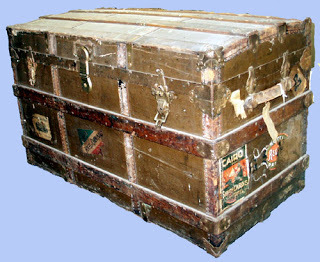 I think almost every would-be author out there has a trunk novel. In fact, I bet at least one. I have a few finished projects that I tried to have published but will never see the light of day. Two or three short stories, a novella, and now one novel.
I think almost every would-be author out there has a trunk novel. In fact, I bet at least one. I have a few finished projects that I tried to have published but will never see the light of day. Two or three short stories, a novella, and now one novel.The novel in question is my humorous urban fantasy, Scarlet Letters. Intended to be a satire combining the nerdy wit of Hitchhiker's Guide to the Galaxy with a hapless mailman who was turned into a vampire by his doctor, it was a fun little romp but ultimately about as lacking in true substance as beaten egg whites.
But because it was my first completed novel and an interesting enough concept (I envisioned it would have the sort of popularity that stories like Abraham Lincoln: Vampire Hunter would have), I put it through the query process and I even submitted it into the contest for the Amazon Breakthrough Novel Award.
I got a couple requests for manuscripts, but at the end of the equation sat a big ol' R for rejection. By the end of it, I wasn't terribly surprised. And eventually, I came to be relieved.
Why relief?
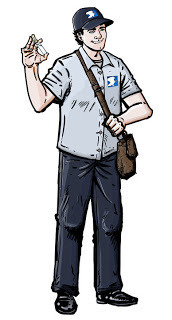 Because I'd had misgivings about the book from the get-go. I don't think the story is rich enough, for one. I like stories that are heavy in the use of themes and deeper characterization, and Scarlet Letters had neither of those things. It was a bit too satisfied with its smarminess. It was self-indulgent. It had the over-confident swagger of a fifteen-year-old boy that a fifty-year-old person would look at and go, "Kid, give it up."
Because I'd had misgivings about the book from the get-go. I don't think the story is rich enough, for one. I like stories that are heavy in the use of themes and deeper characterization, and Scarlet Letters had neither of those things. It was a bit too satisfied with its smarminess. It was self-indulgent. It had the over-confident swagger of a fifteen-year-old boy that a fifty-year-old person would look at and go, "Kid, give it up." It was also comedy. While I enjoy writing humorous dialogue, it's not where I live. Scarlet Letters is not the kind of writing I want to be known for, and in the back of my mind as I was going through the querying process, all I could think of was how if this thing did get picked up and did become successful, how on earth was I ever going to segue into the darker speculative fiction that is my bread and butter? I'd have to completely reinvent myself. And while there are a lot of authors I look up to who aren't hemmed in by genre (Stephen King, Neil Gaiman), they have a firm platform of horror and/or fantasy beneath them and they use that to branch off from. In other words, I don't to establish myself with what was essentially an experimental kind of work. I have a mainstream fiction project I've been contemplating and even started working on, but the same goes with that. I don't want to try to establish a career on it until I've achieved a firm footing as the kind of author I generally want to be. Horror/SF/Fantasy.
I toyed around with the idea of self-publishing Scarlet Letters on Smashwords/Amazon/Barnes & Noble like I have with some of my other stories, but again the question is why. I no longer believe in it and I would feel disingenuous trying to sell it.
Sometimes it's best to step back and evaluate a dud for what it was and move on. Here's what I got from my first trunk novel:
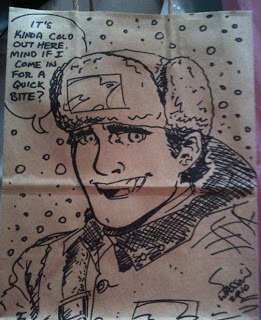 1. It was my first completed novel. It taught me that I can finish a story. And I had great fun rollicking around in Louis Cross's world for a bit.
1. It was my first completed novel. It taught me that I can finish a story. And I had great fun rollicking around in Louis Cross's world for a bit. 2. It taught me a lot about writing a query and a synopsis. I feel more confident entering the query process again with a book that is more definitively "me."
3. The few people who did read it enjoyed it, and it gave me a confidence boost in that maybe I can do this kind of thing for a living with the right kind of stories. My friend Justin also drew some great artwork of Louis for me, and I will forever have the image of that character in my head. I will always look back fondly on him and his story, and maybe even go back and visit him from time to time.
Now that I have released Louis and his friends back into the ether, it's possible he'll come back in another form. Perhaps in the form of a better story. At any rate, that will never happen until I let him go. And let go I must. There's no shame in it. Every single project is a learning experience. Even the failed ones.
Published on March 11, 2011 14:51
March 8, 2011
Awesome isn't usually Cheap. And Why Should it Be?
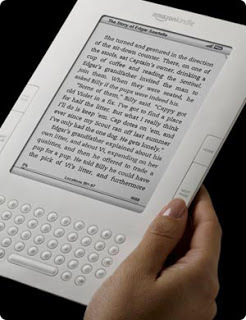 With all this talk floating around lately about the "Kindle Millionaires" and the coming exodus of writers leaving the traditional publishing world for the supposedly greener pastures of self-publication through Amazon, Barnes & Noble, Smashwords, etc, I've been having a bit of an existential crisis as a writer. What does this mean for me? Should I self-publish too? Granted, I have a few titles for download on Smashwords, but mostly I've been using it as a place to put my reprints. And I've sold a decent number of copies so far, considering I haven't done much by way of marketing.
With all this talk floating around lately about the "Kindle Millionaires" and the coming exodus of writers leaving the traditional publishing world for the supposedly greener pastures of self-publication through Amazon, Barnes & Noble, Smashwords, etc, I've been having a bit of an existential crisis as a writer. What does this mean for me? Should I self-publish too? Granted, I have a few titles for download on Smashwords, but mostly I've been using it as a place to put my reprints. And I've sold a decent number of copies so far, considering I haven't done much by way of marketing.But for all the romantic platitudes about forging one's own destiny, or whatever Fleetwood Mac sang about going your own way, there exists one kernel of truth behind the success of these (select few) authors. Consumers are flocking toward cheap, impulsive buys. There is very little a buyer needs to risk with a $1-$3 download. If they like it, it was a very huge payoff, and if the author has other books to choose from, they can own that person's entire catalog for the price of one hardcover. Or less. If they didn't like the book, they're only out a couple bucks and no one feels particularly violated.
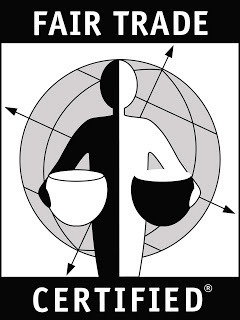 Cheap price points appeal to people in all matters. Hell, one could argue that the human pursuit of cheap, and the ever-waning perception of value in this country is perhaps at the root of our economic woes. And it continues to get worse every year. When we pay for anything these days, we're no longer thinking about the stores it keeps open or the people our money helps to keep employed. We could give a shit less about the salaries of editors--or really even the writers--artists, marketers, lawyers, etc that buying a traditionally published book pays for. We'd rather buy cheap coffee beans from exploited African farmers than pay a little more for Fair Trade beans. We'd rather buy a cheap bookshelf from Ikea that will probably fall apart within a few years than a piece of furniture from an actual local craftsman that could last a lifetime. Of course, the latter piece of furniture would probably cost three times as much and that furniture maker would probably be able to feed his family nicely with the proceeds from his furniture-making sales, but we don't think about that. We think about what it will cost us right now. How much is it going to put US out, even if in four or five years we're out buying another cheap bookshelf?
Cheap price points appeal to people in all matters. Hell, one could argue that the human pursuit of cheap, and the ever-waning perception of value in this country is perhaps at the root of our economic woes. And it continues to get worse every year. When we pay for anything these days, we're no longer thinking about the stores it keeps open or the people our money helps to keep employed. We could give a shit less about the salaries of editors--or really even the writers--artists, marketers, lawyers, etc that buying a traditionally published book pays for. We'd rather buy cheap coffee beans from exploited African farmers than pay a little more for Fair Trade beans. We'd rather buy a cheap bookshelf from Ikea that will probably fall apart within a few years than a piece of furniture from an actual local craftsman that could last a lifetime. Of course, the latter piece of furniture would probably cost three times as much and that furniture maker would probably be able to feed his family nicely with the proceeds from his furniture-making sales, but we don't think about that. We think about what it will cost us right now. How much is it going to put US out, even if in four or five years we're out buying another cheap bookshelf?Borders is closing nearly half their stores right now, and we rush out to rip books from shelves that only have a 20% markdown. That amounts, roughly, to about three bucks on a trade paperback. Three freaking dollars. A multi-billion dollar company is going bankrupt and sending hundreds of unemployed people onto the streets because, theoretically, they couldn't coax you into their stores unless they gave you a discount that amounts to the price of a Starbucks latte that most people happily pay for (sometimes multiple times a day) without even thinking?
What the hell is wrong with people? Why are we so obsessed with getting more for less? Isn't a book that has been labored over for months in terms of content, marketing, etc worth the money in terms of the pleasure it gives us? In my lifetime, I've spent thousands (probably tens of thousands) of dollars on brand new and used books, and so far I've spent a couple hundred on downloads. And I've always felt happy about it. Like I was doing something good for myself. I've always seen buying books as something like spa treatments for the mind. You could argue that publishers are buying and releasing crap, but not every book a publisher releases is going to be great or written for me.
The world doesn't revolve around me.
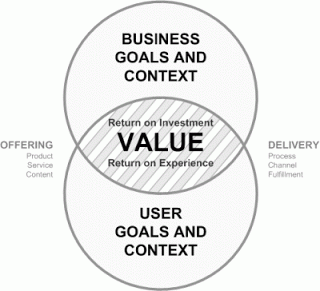 And that is perhaps the most salient point. It isn't all about me. Therefore, when I pay for something, I expect there to be a lot associated with that price apart from what it brings ME. I don't mind keeping editors and copy editors and marketers and agents and illustrators employed. Because I've already lived too long in a country where millions of people are without a job, and it sucks. I will pay $9.99 for an ebook if I believe that book is going to be a superior read from a decent author, and I will often pay that $9.99 before I'll pay $2.99 for a self-published book sight unseen. Because editing means something to me, and I can tell you right now that even a book edited by a lone freelance editor (like me) is STILL not going to be as good as that same book edited by a team of people at even a tiny publishing house.
And that is perhaps the most salient point. It isn't all about me. Therefore, when I pay for something, I expect there to be a lot associated with that price apart from what it brings ME. I don't mind keeping editors and copy editors and marketers and agents and illustrators employed. Because I've already lived too long in a country where millions of people are without a job, and it sucks. I will pay $9.99 for an ebook if I believe that book is going to be a superior read from a decent author, and I will often pay that $9.99 before I'll pay $2.99 for a self-published book sight unseen. Because editing means something to me, and I can tell you right now that even a book edited by a lone freelance editor (like me) is STILL not going to be as good as that same book edited by a team of people at even a tiny publishing house.And I can tell you right now that each and every book on my Favorite Books of All Time list came from a traditional publisher. We might as well stop lying to ourselves if we think for a minute that the best self-published book is going to be of the same quality as a book that comes from a traditional publisher. Even Amanda Hocking admits she could use a better editor, and most self-publishers are trying to be their own editors, which spells disaster for even the most prodigious raw talent. I would be VERY remiss to put out a novel of my own that hasn't had a professional edit of some sort, and I bet you most of the NYT Bestsellers would say the same thing.
That being said, I want all people to prosper. I'm glad J.A. Konrath and Amanda Hocking have found a way to make the e-publishing thing work for them, and I'm behind anybody who wants to try it. I would be lying if I said I wasn't just a tad bit jealous of the rare success stories. After all, they're making their own way. And there is a very big allure for me to try it for myself and see how I do.
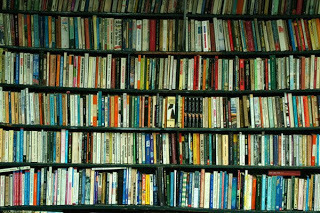 But I think it's wrong to do it under the precept that traditionally published books aren't an excellent value and that those who work in publishing don't deserve a paycheck and are simply exploiting artists for profit. Oh sure, there is some fat that can undoubtedly be cut from the system, but that's the case with everything. And it's certainly not the same as looking the other way while an entire industry burns, particularly because its gatekeepers wouldn't let you in. I don't know about you, but I'd rather not continue to wax cynical about the industry that brought me 1984 and The Stand and The Road and Little Women and The Moon is a Harsh Mistress and so forth, because I'd love more than anything for one of my books to be mentioned in the same breath as those. And I know how they got there and how most writers today will continue to get there, even with the advent of e-publishing.
But I think it's wrong to do it under the precept that traditionally published books aren't an excellent value and that those who work in publishing don't deserve a paycheck and are simply exploiting artists for profit. Oh sure, there is some fat that can undoubtedly be cut from the system, but that's the case with everything. And it's certainly not the same as looking the other way while an entire industry burns, particularly because its gatekeepers wouldn't let you in. I don't know about you, but I'd rather not continue to wax cynical about the industry that brought me 1984 and The Stand and The Road and Little Women and The Moon is a Harsh Mistress and so forth, because I'd love more than anything for one of my books to be mentioned in the same breath as those. And I know how they got there and how most writers today will continue to get there, even with the advent of e-publishing.I will continue to hope every day for the survival of the publishing industry and its gatekeepers and editors and proofreaders and illustrators and printers and distributors, even as I cheer for the success of the indies. As a writer, I understand the need to write and for people to read what we write, and e-publishing is a wonderful outlet for that. Because not every writer is going to make it through the gatekeeper system. Hell, probably not even me. The odds are never in an individual's favor, which makes success in this business a huge triumph.
But make no mistake: excellent products and services do and SHOULD come at a premium. Because we're all in this together, doing what we love, and if we can live off the proceeds of doing what we love, then we're all the richer for it. Not just with books, but with everything.
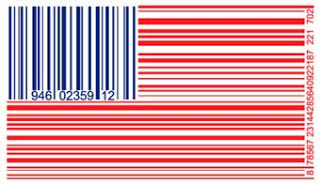
Published on March 08, 2011 07:51
February 28, 2011
Going Medium Rare
 I've had a lot of conversations with myself that have gone something like this:
I've had a lot of conversations with myself that have gone something like this:"You really need to stop eating that. It makes you feel like shit." (usually in reference to refined carbs, dairy, and red meat).
"Yeah, I know, but I just do not want to eat a salad right now."
"How come?"
"Well, for one thing, one salad almost always has to turn into more salad, because when you feel you're strapped for healthy eating options salad ends up being pretty much all you eat. Followed up by steamed or grilled chicken. I find most salads to be soulless and boring, and I don't always have the ingredients on hands to make the kind I'd like to eat."
"What kind of salad is that?"
"Oh you know, some mixed greens and tossed with diced tomato, avocado, bacon, and balsamic vinaigrette. Maybe also some gorgonzola."
"That sounds tasty."
"Yeah. But I can't exactly eat that every day. I just don't dig crunching on a big bowl of vegetables every day. Eventually, I tire of eating them and go right back to the burgers and ice cream because they're familiar and they taste good."
"Even though you always feel like crap after you eat those things? You're like a drunk who keeps falling off the wagon."
"Yeah. Sigh."
"Well what about soup? Soup is good."
"I love soup. But I hate canned soup. I could make a big pot of it to last a couple days, but I tend to tire on leftovers really quickly. Also, there are some vegetables that are healthy but I just don't like eating, period. Like dark leafy greens such as kale."
"So what you're saying is you like fresh ingredients, but you don't like the idea of a big bowl of rabbit food or vegetable soup every day?"
"Pretty much."
"And you'd like to be able to enjoy the health benefits of these foods if they were provided to you in a more palatable way?"
"Totally."
And, for either lack of funding or initiative or ideas to get my diet how I wanted it, I'd usually go right back to the foods that I was used to, even though I know with every bite, they're pretty much killing me. Or I would try to supplement those things through pills and powders and whatnot, never really feeling the same benefits I feel when I eat the ACTUAL foods. I have high blood sugar and am on Metformin. My LDL cholesterol is too high, and I am in a constant state of inflammation in regards to my skin (psoriasis). And I'm usually in various stages of tired. If I don't get hold of this soon, I'm going to have a doctor trying to shove all kinds of pills down my throat, and I DO NOT WANT THAT.
I need more actual vegetables and fruits. In fact, I need my diet to be constituted of them by AT LEAST half. I know this, because the short period of time I have been able to sustain a diet that was mostly vegetarian and particularly low on things like bread and sugar, I have never felt better. And while I can drink a glass of V8 every morning, I'd really need to drink five or six glasses to get any benefit out of it. And there is enough sodium in that stuff to choke a horse.
And it isn't just about me. It's also about the kids. They definitely need more vegetables in their diet, and a couple Flintstone vitamins a day isn't going to make up for what they're not eating every day. They need the nutrients from those colorful veggies and fruits every bit as much as I do, if not more.
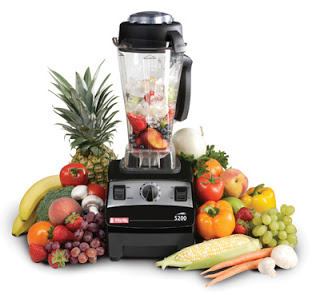 The one delivery method that I know works for me--soups and smoothies--has been mostly kept out of reach because I've been lacking the proper appliance for it: a high powered blender. So three days ago, I ordered the family a Vitamix blender.
The one delivery method that I know works for me--soups and smoothies--has been mostly kept out of reach because I've been lacking the proper appliance for it: a high powered blender. So three days ago, I ordered the family a Vitamix blender.I've wanted one for about ten years. I would see the demonstrations at state fairs and Costcos and I would watch chefs use them on TV and cooking magazines review them, all the while saying to myself, "some day, I'm going to have one of these machines."
And those who don't know the difference between a Vitamix and a $30 Oster are really missing out. These babies have so much horsepower that you can throw a whole apple into one, seeds, core, stem and all, and it will be ground into a smooth puree in seconds. Pineapple slices with the core? No problem! Unlike juicers, these blenders use the entire foods and allow you to get as much nutrition (and fiber) as possible by breaking down cell walls far more than a typical machine would, keeping the foods in their otherwise uncooked state but leaving them easier to digest.
I've been studying lately the benefits of an increased raw food diet on autoimmunity and other disorders like diabetes. The benefits are so intriguing that I feel, especially armed with the Vitamix, that I can take on this challenge. I'm not looking to go 100% raw right now. It's not a commitment that I feel most people can make overnight, but the idea is to replace as much processed food as possible with whole, unadulterated foods with help from the Vitamix. I feel it will have a tremendous positive effect not only on my health, but that of my husband and kids. My daughter is so excited to try a green smoothie, and I couldn't be more excited about that.
But the idea isn't to just drink smoothies. It makes preparing all sorts of dishes easier, such as nut butters and "milks," salsas, guacamole, soups, and even ice cream (made from any number of dairy alternatives). Also, it allows one to grind whole grains into flour as well as knead bread dough. Also, with my passion for making seasonal fruit butters, I will get a very smooth grind and be able to use the whole fruit with help from the Vitamix in no time flat.
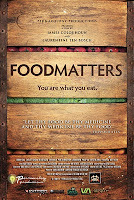 Honestly, I haven't been more excited about something in a long time. Suddenly, I feel like a whole world of neglected natural foods will finally be available to me in a way that I can actually enjoy them. And the more we enjoy these kinds of foods, the more we crave them--in EVERY form. It's a way of eating that is not only easier on the body, but also on the planet. Sure, I'll still enjoy cooked meals from time to time, but I'll feel better doing it knowing that I'm nourishing my body far better than I have been.
Honestly, I haven't been more excited about something in a long time. Suddenly, I feel like a whole world of neglected natural foods will finally be available to me in a way that I can actually enjoy them. And the more we enjoy these kinds of foods, the more we crave them--in EVERY form. It's a way of eating that is not only easier on the body, but also on the planet. Sure, I'll still enjoy cooked meals from time to time, but I'll feel better doing it knowing that I'm nourishing my body far better than I have been.For more information on the benefits of raw foods, I highly recommend the documentaries Food Matters and A Beautiful Truth. I was a major holdout on the idea for the longest times until I really started wrapping my head around the science of it. Both films are available on Netflix streaming as well as online. Also check out the Vitamix website for demo videos and testimonials. I look forward to documenting my adventures with it and sharing new recipes here. I also look forward to unlocking my body's true potential and watching it heal itself from the inside out.
I also look forward most of all to the increased mental clarity and the kind of creativity that I know springs forth from it.
Published on February 28, 2011 12:15
February 17, 2011
A Problem of Uniformity...
 I recently got a job at Meijer, a Midwest one-stop shopping chain. The editing business is going through its slow period and I've been looking for a reason to get out of the house and make a little bit of side money, so a retail gig seemed like the best option. The job pays very little (like most retail gigs), but it's high energy and keeps me from getting bored. Seems like a win-win. Not only that, the store is right up the street and convenient to get to and I'd be working in the garden department, which is something that sounded like a lot of fun when offered the position.
I recently got a job at Meijer, a Midwest one-stop shopping chain. The editing business is going through its slow period and I've been looking for a reason to get out of the house and make a little bit of side money, so a retail gig seemed like the best option. The job pays very little (like most retail gigs), but it's high energy and keeps me from getting bored. Seems like a win-win. Not only that, the store is right up the street and convenient to get to and I'd be working in the garden department, which is something that sounded like a lot of fun when offered the position.However, the training process for Meijer is, to put it lightly, tedious bordering on joy-killing. I have worked in a number of retail environments, and this one is the most intensely dissatisfying. There is no hands-on learning going on here. It's all sitting behind a computer screen for hours listening to one dry lecture after another, learning nothing. For a job that's all about thinking on one's feet and being engaging, the training program couldn't possibly be more antithetical to those things. And it's not just one day. I've spent nearly a week in training classes. Even the cashier class has been in a classroom. And not even on the computer. You have to sit there and flip through a thick binder, struggling to stay awake, while someone monotonously rattles off how to scan coupons, do lane returns, and enter PLU numbers for produce and other items. In other words, stuff that would have been much more easily retained if taught in the actual cashiering environment rather than in a dry lecture. Oh, but the training isn't exactly over yet. Apparently hands-on training begins Saturday, where we get to put to use all of the stuff (most of it) that didn't stick in my brain on Tuesday.
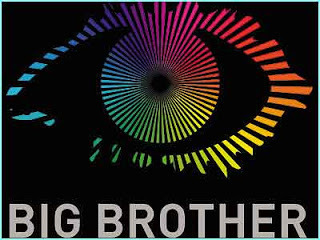 The company also has a very Big Brother attitude that I find off-putting. The two-minute grace period for clocking in (the computer dings you for disciplinary action if you're more than two minutes late) is a bit much even for my ultra-punctual ass. Two minutes in my universe is like no time at all. Someone's watch could be off by 120 seconds, easy. Why two and not five? Isn't that a bit more fair or reasonable? Already, I'm feeling less than enthusiastic about this company.
The company also has a very Big Brother attitude that I find off-putting. The two-minute grace period for clocking in (the computer dings you for disciplinary action if you're more than two minutes late) is a bit much even for my ultra-punctual ass. Two minutes in my universe is like no time at all. Someone's watch could be off by 120 seconds, easy. Why two and not five? Isn't that a bit more fair or reasonable? Already, I'm feeling less than enthusiastic about this company.All that being said, these things would be acceptable to me if not for one seemingly small (but not) caveat: the uniform.
You're provided with two red polo shirts and are asked to furnish either black or khaki pants. Heck, even denim is totally acceptable. That's a bonus. It's not much different than the Target uniform, or so I thought. There is one key difference: you are required to tuck in your shirt. No exceptions. And it is with that (again seemingly) small demand that I find a stumbling block.
To some (or perhaps even most), the requirement to tuck in a shirt seems like a no-brainer. But it has never been for me. I never tuck in a shirt. Nev-er. To do so runs counter to a lifetime of strategic body camouflage that has made it possible for me to walk out of my house every day with my head held up. I can look strangers in the eye with a smile because I feel secure that the parts of myself that I don't want them to see are safely hidden behind a panel (or two) of fabric. Asking me to tuck in my shirt is, on an emotional level, not wholly unlike asking me to expose my breasts. It would be easier if I could wear an apron or a vest of some sort, but no.
You might think this is hyperbole and you're allowed to think that, I guess. You don't live in my head or in my body. I've gone through life with an overly-long torso and a stomach that has never been flat. The struggle to find shirts that are even long enough to cover what I want to cover has been never-ending. Let's just say that the word "tunic" is the most prominent word in my clothing language and if shopping in a catalogue, I seek out shirts that are, on average 30-32" long.
Still, I didn't want to be a baby and punk out on my first day in the Meijer uniform just because I'm self-conscious about my body. I was determined to see if I would look or feel as bad as I imagined I might when told the uniform requirements during training. When I had asked the lady if I absolutely must tuck in my shirt, she nodded (with a touch of sympathy because she too is not a small girl) and said, "I just get a size bigger and blouse it out. The shirts are really long."). So I was willing to give it a go. After all, the shirts were indeed long. In fact, too long to wear untucked without looking pregnant or stupid (see, there is such a thing as too long of a shirt, and I think they designed them this way for easier tucking).
So I tucked the shirt into my black slacks (the most flattering and slimming pair I own) and bloused it out as far as I could and looked in the mirror. A feeling of panic set in not unlike what happens in that dream where you suddenly appear naked in front of a crowd. Everything I'd hidden my whole life was "out there" for the world to see. Every step I'd made in learning to appreciate my body a little more was erased and I was thrust right back onto square one again. I wasn't ready for this. Even the most confident of us have some sort of comfort threshold, and mine was being violated ten times over. I wanted to rip off the shirt and tell Meijer to suck it. I wasn't going to do this to myself for $7.50 an hour. If my job is to be open and engaging and able to sell something, I can't do it when I feel embarrassed and uncomfortable in my own skin.
But I didn't quit right there. I didn't tell Meijer to suck it. I went to work. And spent the next several hours carefully examining the eyes of others to see if they were glancing down at my bulging belly and feeling my cheeks burn as I walked away, terrified that they were looking at my fully-exposed ginormous ass.
I've only begun my battle on attaining a positive self-image, even in light of my "flaws," but that fight is still in its infancy and this is not the way I'd intended to go about it. This is the self-esteem equivalent of being tossed into shark infested waters, covered in reeking chum, and told to swim.
No, it doesn't help that I see women and men of all shapes and sizes walking around in their tucked in shirts. It doesn't make me feel better that I can purchase a Meijer-sanctioned fleece cover-up. For one thing, it'll be Spring in a month and we're enjoying a spate of 60-degree weather as I write this. For another, I'll be working outside. The fleece will be a temporary security blanket at best and what then?
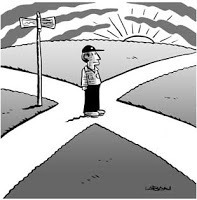 I have left a message with my manager asking if there is any possible way the company will work with employees who can't abide by the dress code, but I already know the answer and it makes sense that they wouldn't cater to me specifically. If they do, then they will likely have a whole legion of Meijer employees ripping their shirts out of their pants. Besides, if I want the freedom of wearing a uniform top that actually flatters me and makes me feel like a professional, I can always go work at Target again, where untucked shirts are welcome with opened arms.
I have left a message with my manager asking if there is any possible way the company will work with employees who can't abide by the dress code, but I already know the answer and it makes sense that they wouldn't cater to me specifically. If they do, then they will likely have a whole legion of Meijer employees ripping their shirts out of their pants. Besides, if I want the freedom of wearing a uniform top that actually flatters me and makes me feel like a professional, I can always go work at Target again, where untucked shirts are welcome with opened arms.So I'm still in the middle of this quandary. Nothing has yet been decided. I'm weighing between biting my tongue and just seeing if I can get used to it and telling them that making myself feel this way is not worth $7.50 an hour and that I'll keep looking for work that better suits me. Bottom line, I feel guilty for letting people down because of my insecurities. But if I can't feel comfortable in my own skin, what good will I be? If I can't wear the uniform with pride, isn't it best to open the spot up for someone who can?
Published on February 17, 2011 06:49
January 30, 2011
Calling forth our Black Swans
 I watched the film Black Swan the other night feeling fascinated, horrified, and most of all empathetic. Natalie Portman (in some of the best acting I've seen ever, let alone all year) plays a ballerina obsessed with perfection. And when asked to portray a role in Swan Lake that embodies both the pure and delicate white swan and the seductive and dangerous black swan, she runs into problems. Her fragile personality and years of hardcore training (and mommy issues) have made her the perfect white swan, but she struggles when she's forced to let go of that and embrace the freedom and sultry imperfection of the black swan.
I watched the film Black Swan the other night feeling fascinated, horrified, and most of all empathetic. Natalie Portman (in some of the best acting I've seen ever, let alone all year) plays a ballerina obsessed with perfection. And when asked to portray a role in Swan Lake that embodies both the pure and delicate white swan and the seductive and dangerous black swan, she runs into problems. Her fragile personality and years of hardcore training (and mommy issues) have made her the perfect white swan, but she struggles when she's forced to let go of that and embrace the freedom and sultry imperfection of the black swan.Well, that puts it lightly. In the film, she basically starts losing her mind, but that's all I'm gonna say about the film's plot.
The point is, the main theme of Black Swan, apart from the whole divided nature thing, seems to be centered on dangers of perfectionism, and that is what really struck a chord with me, and I think it does with anyone who pursues any kind of art, be it ballet or painting or writing.
Writers are constantly climbing a mountain of self-improvement. We're told "never use adverbs." And "never, ever use passive voice, except when you must use it." Or "for the love of god, stop using so many adjectives and dialogue tags!" And that's only the beginning. Hell, I say these things all the time as an editor, and over the years I've worked to hone my own writing in a similar manner. But it is possible to go too far in the other direction by scrubbing the humanity completely out of your work.
But we follow these "rules" because, like Portman's character, we "want to be perfect." We're force-fed the belief that perfection equals success. And if we follow all these rules and lessons, our work can be pretty damn close to perfect. At least on a technical level. The problem with technical perfection is that it leaves little room for art. Truly beautiful art is not sterile, at least in my humble opinion. While it's fun to read about robots, it's not so much fun to read the writing of a robot.
I found myself ruminating on my work as I pondered the movie. Certainly, there is nothing wrong with clean technique. Portman could never have become the Black Swan without the prodigious skill that made her the perfect white swan. But there is also something to be said for letting go. To stop obsessing over every little step (or adverb and adjective as the case may be). Sometimes you need to get dirty to tell the most compelling story you can. People are seduced more often by the emotion you put into a story than anything else. How else to explain the amazing success of writers who, technically at least, aren't very good? They write with full abandon and belief, and I truly believe that is the most important thing we can do. While there is beauty in perfection, there is nothing about it that tugs at our heartstrings.
 And that's what the arts are really about. To make people feel something and to remember it.
And that's what the arts are really about. To make people feel something and to remember it.Watch this movie and tell me if you weren't physically moved when Portman donned that gorgeous black costume and danced from the depths of her soul, when the strings that bound her to her "white" self were finally severed, allowing her to breathe and spread her wings. That is when we saw her true beauty burst forth. Tell me if you remember any of her dancing before that moment.
That's how I want to write and that's what I like to read.
And really, you should see this movie.
Published on January 30, 2011 08:43
January 18, 2011
Self-Editing: Before and After
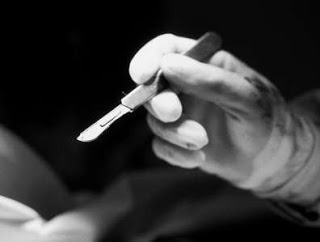 I'm editing my old story "Vermin" so I can put it up on Smashwords today or tomorrow. This was my second published story, and in many ways it reads worse than my first one, which at least had received a thorough edit before it went to print.
I'm editing my old story "Vermin" so I can put it up on Smashwords today or tomorrow. This was my second published story, and in many ways it reads worse than my first one, which at least had received a thorough edit before it went to print."Vermin" wasn't so lucky. Believe it or not, most non-professional publications don't put your manuscript through a thorough edit before they run it. Proofreading is about as good as you can expect. And unfortunately I was still pretty wet behind the ears with this sort of thing. However, once it went live, I wished I could take it down. While I enjoyed certain parts of the story, it wasn't up to my standards even in the two months between acceptance and publication. I can now see why it took so long for the story to find a home.
This isn't to bash the fine people at the publication where it still resides in the online archives (hopefully to never again see the light of day in that form). They obviously saw a glimmer of promise in it and me, and even though the work is no longer up to snuff, it's still a publishing credit that gave me the self-confidence I needed to keep producing better stuff.
Still, the original version is a hot mess and I've been buffing away all morning. To illustrate, I'm going to post the opening paragraph of both the original published version and the one that is going to be in the Smashwords edition. Maybe you'll see what I'm talking about:
BEFORE:
Oscar drove his Rid-Rite Pest Control truck up the winding, steep driveway of the old Martindale house and ground the vehicle to a stop in the dusty circular driveway. The Cape Cod-style house had once been home to Senator Abner Martindale and his family, but had stood empty for over two decades. A large sticker with a bright red SOLD blazed across the front of a weather-beaten For Sale sign, as if to proclaim to the world, "I'm baaaack!"
Like I said, hot friggen mess, and the story was rife with paragraphs like this. There are too many descriptive words (winding, steep, old, dusty circular, etc). It's trying to tell too much in the space allowed, and it overwhelms rather than intrigues. Furthermore, the phrase "pest control truck" stumbles in the brain and on the tongue no matter how many times I've read it, and I struggled then to fix it before finally giving up. Never mind the redundancies of the words "driveway" and "house" in the first two sentences that someone should have caught--either the editor or me (the editor's eyes were fresher than mine at the time, so yeah, I'm pointing a very small finger). It's also lacking a distinctive voice and tone. Two years ago, I couldn't have conceptualized such a thing, but I've improved somewhat since then. Time for the scalpel.
AFTER:
Oscar parked his Rid-Rite Exterminators truck in front of the infamous Martindale house.* The old Cape Cod had stood empty for over two decades, but someone just bought the thing. The weather-beaten For Sale sign now proclaimed SOLD!, which felt more like a taunt than a boast.By contrast, we have an introductory paragraph that is both shorter and clearer. That tongue-twisting phrase is gone too. Why I didn't think of that the first time, I can't tell ya. I removed most of the infodump about it being a Senator's house and sprinkled that stuff more judiciously throughout the story instead. Finally, the last sentence adds both foreshadowing and voice, telling us something about the house and Oscar. The original version attempted to do the same thing, but the execution was clumsier.
Anyway, you might not agree with my reasoning here. Maybe you thought the original paragraph was just fine. Maybe you don't think the second paragraph is much of an improvement. But I feel a lot happier with it as a whole. I'm putting myself out there like this to demonstrate a couple points:
1. There is always room for improvement. Although it was an amateur market, this story was "published" this way. Someone paid me money for it. Not all published work is good work, and by the same token, not all good work is published. I have stories a million times better than this that I am still struggling to publish. Don't ever think your skill level has reached a peak. I may look on my "After" version in another two years and see what I could have done differently. But I figure I'll be done with such torture at some point. There are only so many unnecessary words you can take out of something before you have nothing left.
2. Less is more. Full stop.
*Thank you to my friend Karyn for leading me to think of an improvement on the improvement. The line originally read, "...in front of the old Cape Cod. The infamous Martindale house..."
Published on January 18, 2011 10:49
January 17, 2011
New, Streamlined
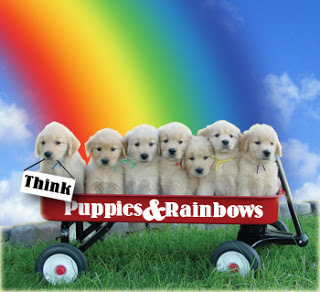 The site is getting a bit of a makeover for the new year. In many respects, I was tiring of the old page. It was too big. Too garish. Too fucking obnoxious, really. Also, I wanted something new to go in conjunction with my new venture over on Smashwords, where I'm offering more of my titles (both previously published and those that never could find a home but are still damn good yarns, I promise) up for sale. As more stories become available, I will be adding them to the sidebar. The next one is my creepy-crawly story called "Vermin," which ran in Reflection's Edge last year. Be on the lookout for that. You may also expect to see my funny urban fantasy novel, Scarlet Letters, up for sale soon as well.
The site is getting a bit of a makeover for the new year. In many respects, I was tiring of the old page. It was too big. Too garish. Too fucking obnoxious, really. Also, I wanted something new to go in conjunction with my new venture over on Smashwords, where I'm offering more of my titles (both previously published and those that never could find a home but are still damn good yarns, I promise) up for sale. As more stories become available, I will be adding them to the sidebar. The next one is my creepy-crawly story called "Vermin," which ran in Reflection's Edge last year. Be on the lookout for that. You may also expect to see my funny urban fantasy novel, Scarlet Letters, up for sale soon as well.Formatting stories for e-publishing has been a bit of a crash course for me, but I think I'm starting to get the hang of it. Designing covers is not my strongest suit, but GIMP has been good to me so far and I've been able to make pretty good if limited use of its features. The documents themselves haven't been too difficult at all. That's due mainly to the minimalist education I received in formatting manuscripts over the years. No fancy fonts, no unusual paragraph styles or headers, and avoiding the tab key like the plague goes a long way toward prepping your manuscripts for converting to ePub and other electronic formats. The less you have to mess around with Word removing extra artifacts (that shouldn't have been there in the first place if you have been a student of proper manuscript formatting), the better off you'll be.
At any rate, I hope you like the new design. Yes, it's a bit monochrome. But I like monochrome. In a way, it reflects what I write, which is what I always strive for. If I'd put weeping puppies up on the background, you might have been a little thrown when you opened your copy of "Dust" and started reading about little gray particles of matter eating people alive. Anyway, even if you don't have a Kindle or a Nook (or the corresponding device apps), my stories are available in all formats, even HTML or PDF. Soon, Smashwords should be distributing the stories to Amazon, Barnes & Noble, the Apple store, and other retailers. And then I shall RULE THE WORLD! Or be a few bucks richer anyway. We must take what we can.
Published on January 17, 2011 11:23
January 11, 2011
We're Asking the Wrong Question
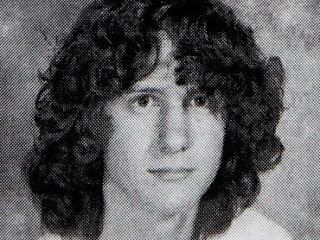 I have always intended to keep this part of my web presence politically neutral. Anyone who knows me knows where I stand, and they can interact more with me on a political basis on Facebook or Twitter, but in the aftermath of the Arizona shooting, I have been doing a lot of reflecting and have decided to put my thoughts on the matter here, not to generate debate, but just to express what conclusions I've come to over the last few days.
I have always intended to keep this part of my web presence politically neutral. Anyone who knows me knows where I stand, and they can interact more with me on a political basis on Facebook or Twitter, but in the aftermath of the Arizona shooting, I have been doing a lot of reflecting and have decided to put my thoughts on the matter here, not to generate debate, but just to express what conclusions I've come to over the last few days.When I first heard the news, seeing it juxtaposed with that fated Palin cross-hair map, I became enraged. The map, the vile rhetoric and increasing anti-government sentiments floating around the media, the target--all of it seemed like too much of a coincidence. We were finally reaping the seeds of political hatred this country has been sowing for the last two years. But then as information about Jared Loughner started coming out, it seemed more like this individual had slightly different motivations, namely mental illness. Certainly he had political reasons for doing what he did, but they seem muddied by his delusions.
Of course, the pundits and political figures that were feeling unjustly scrutinized for their vile rhetoric didn't hesitate to leap at the chance to proclaim, "See? See there? He wasn't a Republican! He was just plain crazy! It wasn't our fault after all!"
But that last part has yet to be proven. We don't know if he acted alone or with an accomplice. Information about this person can only be gleaned from his leavings on Myspace and YouTube, and we only know what the ever-speculative media is telling us. When Loughner goes to court, more information will eventually be revealed, but for right now, it seems as if the people on the far right are more than inclined to exonerate themselves of any role in inciting this particular young man to go on a shooting spree. But everyone seems to be missing something very important in all of this. The question shouldn't be: "Is the vitriolic political rhetoric of the day to blame for this shooting?"
Instead, we should be asking: "Isn't it a poor reflection of today's environment when we even have to ask that question?"
The relentless search for vindication and validation I'm seeing by certain figures seems to be an implicit admission that the political environment they were creating, with the help of the media, is certainly capable of spawning a violent and deadly event, and to me, that's enough for me to say, "Well fix it."
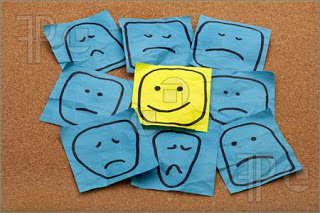 It's a bit like the climate change argument. We have one side presenting the science and another fighting it tooth and nail to find holes in it. And to what end, exactly? To continue the status quo? To those people, I say: stop fighting to vindicate yourself so you can continue being a thoughtless moron. Science or no science, it's best to err on the side of GOOD, is it not. Wouldn't we ALL be a little better off if we stopped spewing pollutants in the air, recycled a little more, and conserved electricity and water?
It's a bit like the climate change argument. We have one side presenting the science and another fighting it tooth and nail to find holes in it. And to what end, exactly? To continue the status quo? To those people, I say: stop fighting to vindicate yourself so you can continue being a thoughtless moron. Science or no science, it's best to err on the side of GOOD, is it not. Wouldn't we ALL be a little better off if we stopped spewing pollutants in the air, recycled a little more, and conserved electricity and water?Wouldn't we all be better off if we were a little less angry, a little less greedy? It has been demonstrated time and again, both in science and in real life, that lasting change, the kind that actually benefits people, is best achieved through positive means. So how about we use a little more of that and a little less of the acid that's slowly wearing away our souls?
Why must people insist on fighting for their right to continue being assholes and instead stop being assholes and see that we'll have a much better world for it? Maybe then, in a better world, they would have far fewer reasons to be assholes.
I'll end here. But I think we should all think not about who is to blame here but what would cause us to point fingers in the first place.
Published on January 11, 2011 11:51
January 6, 2011
Trying Something Crazy: Self Acceptance
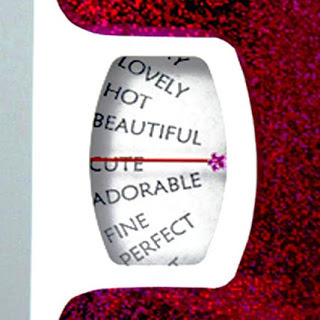 I've had a lot on my mind the last couple days, and this could get long-winded, so bear with me.
I've had a lot on my mind the last couple days, and this could get long-winded, so bear with me.A couple weeks ago, when I discussed possible resolutions for the new year, I wrote about how I wanted to focusing more on self-love and that maybe my first goal to good health should be to focus on my overall health and happiness, to love myself and accept myself for who I am, my body for what it is, and forgo the whole weight loss thing as a main goal. Let it be more of a side-effect of good living, if that is to be the case.
Then I went to the doctor and had some standard bloodwork done. Cholesterol, metabolic panel, etc. When the results came back the next day, I received a call from my doctor's office saying I would need to come back in and go over a few things because my bloodsugar came back elevated. For fasting, it was 135. Not exactly disastrous, but certainly higher than it should be. More tests will be necessary of course to see if this wasn't some kind of fluke. My bloodsugars have always been normal, and my previous doctor always used to run Hemoglobin A1C tests just as a precaution, and they always came back in the 5.5 range, but I have a genetic history (and a fat ass) so it was always better to be safe than sorry.
When I got the news of the elevated bloodsugar, however, my world crumbled in that instance. It finally happened. My fat ass had finally turned diabetic, just as all the news reports, scientists, doctors, and well-meaning friends and family all said jt would, because I'm (in my own words, but let's face it, the sentiments are the same) a gluttonous cow who must eat powdered donuts by the truckload in order to tip the scales as high as I do. I was ashamed of myself. The self-hatred I had been breeding since I was 10 years old and began to grow taller and thicker than all of my peers finally gave birth to an ugly, insulin-resistant baby that pointed its pudgy fingers at me screaming, "HA, told you so fatty! Shoulda stayed on that diet! Too bad you're weak! Weak weak weak!"
I stormed out into the garage to gather up all of the packets of Medifast food I'd been holding onto in the event that I was ready to start clinically starving myself again and tossed them onto the table. And the next day, I started the ghastly regimen of liquid and semi-liquid meals followed by a dinner of steamed chicken and broccoli, all the while miserable, tired, and so very very hungry. The kind of hunger and weakness I remembered feeling when I first did this in April, bound and determined to punish myself for being gross and corpulent.
Then last night, I started reading more about obesity, really reading about it. I started reading more about Type 2 diabetes. I started reading more about the science of weight loss through constant dieting. And then I got up and made myself a sandwich. You know why? Because I was fucking hungry. And because I've been reading about Health at Every Size, which is the most common sense approach to good health I've ever seen. And I started reading the Shapely Prose blog at Kate Harding's site. It has since been closed, but there is a wealth of info in the archives.
I'm DONE dieting. I'm done with commercially-supported starvation that will surely backfire in 6 months, a year, two years, or three, or five (it's been scientifically demonstrated that almost all dieters gain their weight back and then some inside five years) and put me back in the same pit of self-hating despair I've been in most of my life. But most importantly, I'm done thinking I'm inferior because I'm fatter than you and that I should therefore punish myself.
Because isn't that what all weight loss programs end up boiling down to? At the root of every single one, no matter how sensible they sound, is the belief that we are not good enough. We are fat, therefore we suck. Therefore, we shall never eat at a holiday dinner or restaurant with friends, we are unworthy of respect and dignity and love, and we will only be acceptable as humans when we've reduced our bodies enough to fit in a template that our culture has deemed acceptable and desirable.
Do you know how many years I have lived this life in a constant state of "I'm not good enough?" Let's do a brief history of Allie's childhood, teen and early adult years just so you get the idea:
At age 10, I was wearing a women's size 12. By this point, when several of my friends were starting to take an interest in boys, it was made clear to me that my size was making me a target for ridicule rather than a source of attraction. One of my friends was already dabbling with anorexia, so I mimicked her behavior. I would starve myself with her while at school as a sign of solidarity, not eating breakfast or lunch, and then gorge myself when I got home because I was so hungry. This developed into a pattern of eating that exists until this day, and wouldn't you know I kept getting fatter.
At age 12, in the seventh grade, I skipped school as often as I could to avoid facing the bullies who used to tape pictures of back tits on my back, follow me down the hall making Godzilla sounds, etc. My mom left for work early in the morning and came home after I was due home from school, so this was easy. I watched soaps and worked out to this Kathy Smith aerobics tape we had. And I watched this VHS recording of Terminator 2: Judgment Day so many times I had memorized every line of dialogue. I don't know how I managed not to flunk that grade.
Age 14: So roiled with low self-esteem and a certainty that I would never be good enough for anyone, I give myself to the first boy that shows me the least bit of positive attention.
Age 16-19: My weight actually reaches a point of stability. I wear a size 18 and overall am pretty satisfied with myself, even though I'm still (at least in terms of my BMI) obese.
Age 20: I move to Washington state to be with my now husband. After a couple traumatic experiences with my health (and going on Depo Provera), I put on about 50 pounds in a matter of six months. While I had grown somewhat more sedentary and wasn't exactly eating great (I'm a carb junkie, I admit it), that was a lot of weight to gain in such a short period of time. I go on my first diet program, Jenny Craig, and drop 25 pounds in time for my wedding. A few months later, I'm pregnant with my daughter and then deal with a bout of post-partum depression and antidepressants that cause me to gain more weight.
Age 23-25: I have since given birth to my second child and have ballooned up another 40 or 50 pounds, bringing my weight drastically close to 400 pounds. An inexplicable number to me, really. My feelings of dread, doom, and disgust have never been higher. I can't even look at myself without wanting to vomit. I join Weight Watchers and lose 70 pounds.
Age 25-29: Turbulence in my marriage puts my life on the rails for awhile, and my social life explodes into nightly acts of drinking and debauchery. I very slowly but very steadily gain back all the weight I lost.
Age 29-30: My husband and I get back together and I decide to give up the debauchery and start taking my writing seriously. As such, my life becomes more sedentary and the weight increases by another 20 pounds or so. Terrified of the fat, I go on South Beach and drop about 20 pounds. That fails a few months later and then I try Medifast. I lose about 25 pounds in the course of 6 weeks, but my god what a tough six weeks that was.
Now: I've been off Medifast since April and I haven't gained much of the weight back (about 5 pounds or so with a few vacillations in between). And for some stupid reason, I think resorting to another unsustainable eating program is somehow going to be the ticket to good health.
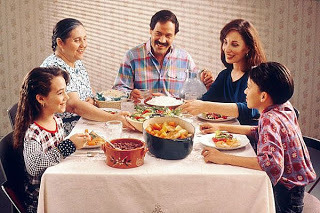 Here's the thing, I know I can lose weight when I really put my mind to it. But the sad fact is that MOST people don't stick to these programs because they're not sustainable, because the minute you stop doing whatever it is that's making you lose weight, your body goes right back to doing what it was designed to do: store calories. Diets focus on deprivation and self-punishment. These two concepts are not COMPATIBLE with basic and happy human existence. Humans are social and emotional creatures. We enjoy food. We assemble rituals and holidays around it. We gather around the table and share stories and laughs. We craft new and amazing tastes, celebrating the bounty the earth gives us every single day, because unlike any other creatures, we have brains capable of processing this complex information. And whether we're fat or thin, we're all a part of these rituals. But when you're fat, your participation in these rituals is always marred by guilt and shame, because for some reason in this culture your fat means that you're "not one of us." You're immoral, unclean, sloppy, smelly, or taboo. You're "other."
Here's the thing, I know I can lose weight when I really put my mind to it. But the sad fact is that MOST people don't stick to these programs because they're not sustainable, because the minute you stop doing whatever it is that's making you lose weight, your body goes right back to doing what it was designed to do: store calories. Diets focus on deprivation and self-punishment. These two concepts are not COMPATIBLE with basic and happy human existence. Humans are social and emotional creatures. We enjoy food. We assemble rituals and holidays around it. We gather around the table and share stories and laughs. We craft new and amazing tastes, celebrating the bounty the earth gives us every single day, because unlike any other creatures, we have brains capable of processing this complex information. And whether we're fat or thin, we're all a part of these rituals. But when you're fat, your participation in these rituals is always marred by guilt and shame, because for some reason in this culture your fat means that you're "not one of us." You're immoral, unclean, sloppy, smelly, or taboo. You're "other." It doesn't matter that diets don't work for the longterm. That we endanger our health by repeatedly forcing our bodies to go against their biological grains by trying to beat and starve away the calories that for whatever reason they insist on storing. That we're doing irreparable damage to millions of self-esteems and self-images by reinforcing these ideals. To be loved and respected and beautiful, we must. be. THIN.
Well here's the thing. I am loved. Always have been, even when I didn't think I deserved it. I have amazing family and friends. I've never been starved for dates and have some pretty incredible memories of my times between the sheets. I have an amazing husband and two beautiful kids (who are not fat, because contrary to what the media tells you, it's possible for a fat mother not to have and raise fat children). I don't smell because I have excellent hygiene. Up until this latest round of bloodwork, I have always had excellent cholesterol and sugars and blood pressure. My body chemistry has been a direct contradiction to what all of the "experts" say it should be for a person of my size, and I'm pretty sure that if there wasn't a world hellbent on demonizing people for being fat, I wouldn't think there was a damn thing wrong with me unless I was diagnosed with an actual disease.
This isn't to say I'm giving up on myself or that I'm going to do nothing in the face of a diagnosis of diabetes, that I'm going to subsist on a diet of twinkies and McDonald's. First of all, I don't like Twinkies or McDonald's and I never subsisted on those things to begin with (believe it or not, I don't eat more than an average person eats, and probably less than many of my thinner cohorts do). But the status quo is not acceptable. I haven't been feeling as good as I know I can feel, and there is more I can do about that without putting some harebrained goal of thinness in my path that will only wind up disappointing me.
 I will get out and move more, not to lose weight but because when I do, I feel better. And when I'm not focused on the primary goal of burning fat, I enjoy the activity so much more. Also, my mind works better and I'm happier overall. Furthermore, I'm going to eat the kind of foods that make me feel good. That might be fish and vegetables one night, but it might be a hamburger or taco the next. Either way, they will be wholesome foods that are kind to the earth and to my body, but if I want a cookie (a delicious, homemade cookie made with wholesome ingredients), I'm going to have one. And if I do in fact have diabetes, I will check my bloodsugar frequently, see how my body responds to what I eat, and then act accordingly by either exercising or making better choices that are better on my body. I will take an intuitive approach to food, but I will not put myself through controlled starvation. If I lose weight as a result of doing these things (and I'm pretty sure I will, just because I know my body well enough to know it responds pretty positively to being treated well), so be it.
I will get out and move more, not to lose weight but because when I do, I feel better. And when I'm not focused on the primary goal of burning fat, I enjoy the activity so much more. Also, my mind works better and I'm happier overall. Furthermore, I'm going to eat the kind of foods that make me feel good. That might be fish and vegetables one night, but it might be a hamburger or taco the next. Either way, they will be wholesome foods that are kind to the earth and to my body, but if I want a cookie (a delicious, homemade cookie made with wholesome ingredients), I'm going to have one. And if I do in fact have diabetes, I will check my bloodsugar frequently, see how my body responds to what I eat, and then act accordingly by either exercising or making better choices that are better on my body. I will take an intuitive approach to food, but I will not put myself through controlled starvation. If I lose weight as a result of doing these things (and I'm pretty sure I will, just because I know my body well enough to know it responds pretty positively to being treated well), so be it. I'm also going to engage in new hobbies and ways of expressing myself. I'm going to make new discoveries that force me to put myself out into the world more and force me to make use of this wonderful life I've been given. There is no reason in the world I can't achieve anything I want to due to my size. I've gotten far in life the way I am, and I will fight for the acceptance I deserve and defy anyone to stop or demean me based on how I look.
Most importantly (and perhaps the one thing that will probably cause the biggest change out of all of them), I'm going to eat when I'm hungry. I'm going to stop eating when I'm full. I'm not going to binge on food to prop myself up in some way emotionally or entertain myself when I'm bored. I'm going to eat slowly and mindfully and savor every bite and taste. I'm not going to punish myself by this perception that I'm "cheating" or "being bad." I refuse to feel shame. I'm going to stop excluding myself from social engagements because I feel too fat to be seen in public. I'm going to be more positive and stop pressuring myself to be something I'm not and wasn't born to be, and thereby fuel my self-loathing even more. I'm going to make peace with this body by doing what fills my soul with light.
This is going to take a long time for me to do. You can't undo a lifetime of self-hatred overnight, but this is the first time I'm putting a concerted effort into it, and I'm determined to make it work. I think everyone around me will be happier as a result.
My daughter and I were sitting together the other night when she looked over and said, "Mommy, you're beautiful." At that moment, I wished I could believe her. But now, I'm damn well going to. Not only because I need to do it for myself, but because I don't want to raise kids that think fat = miserable = shame = diet = fat again.
If someone calls me fat, I'll respond with the only word that is worthy: "Duh."
Published on January 06, 2011 13:53



